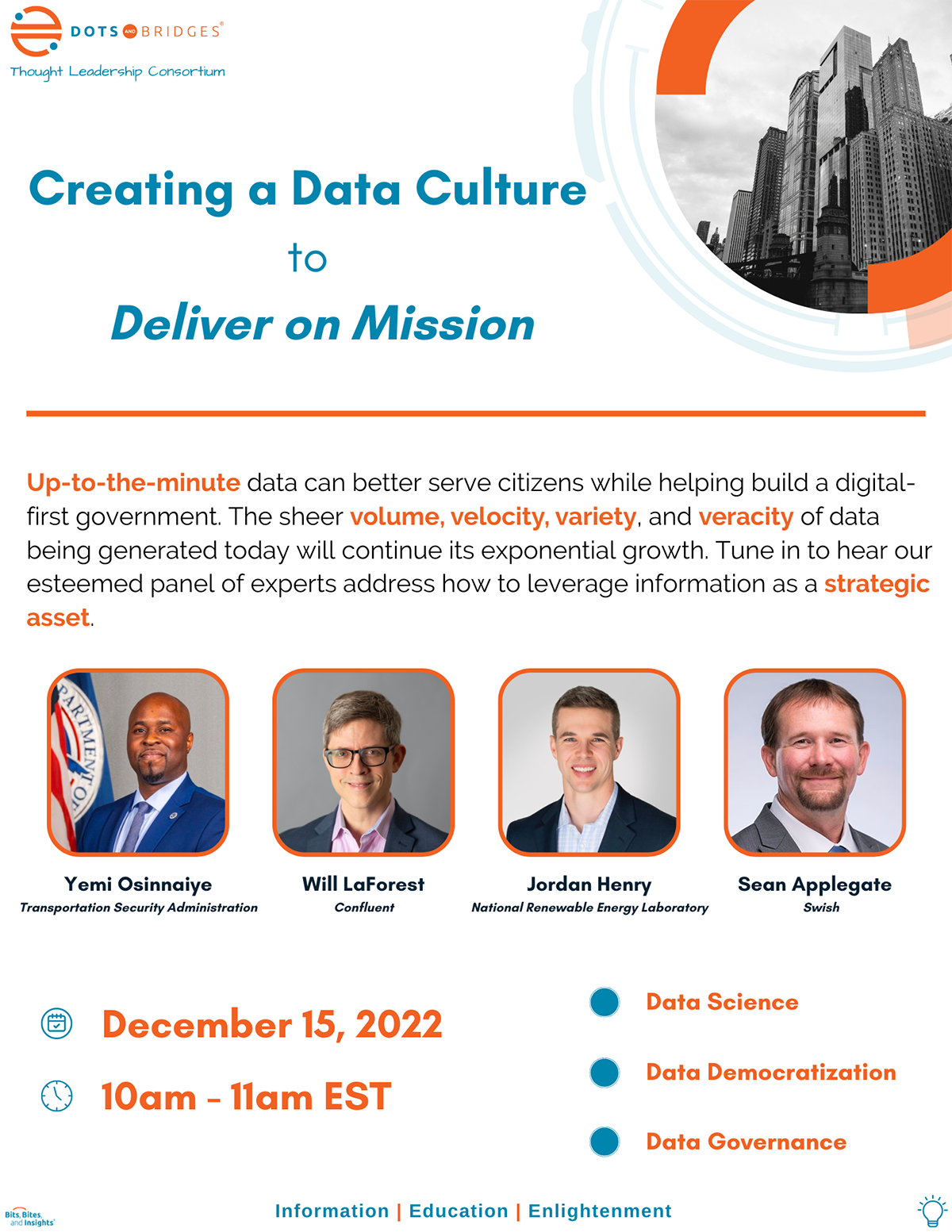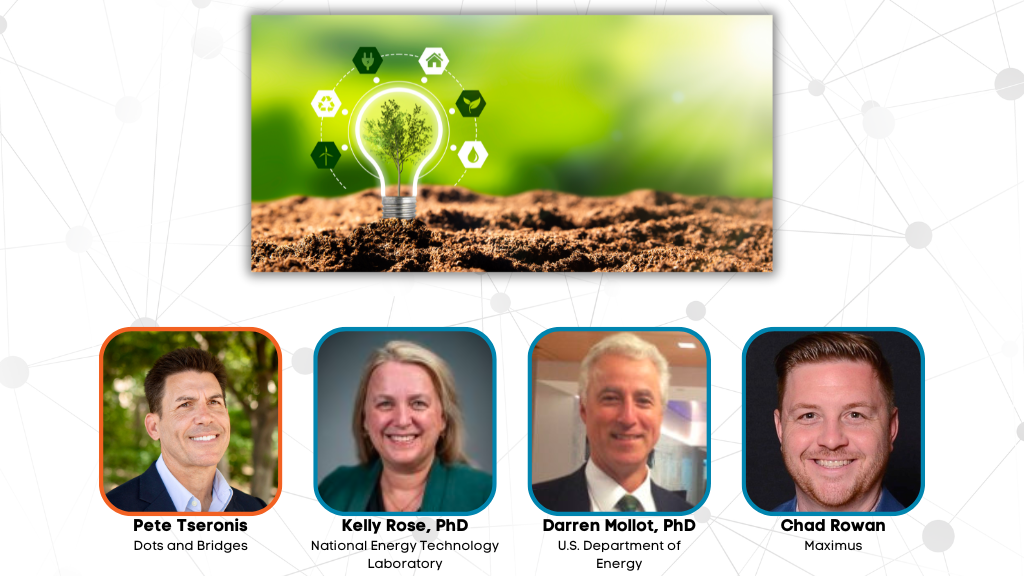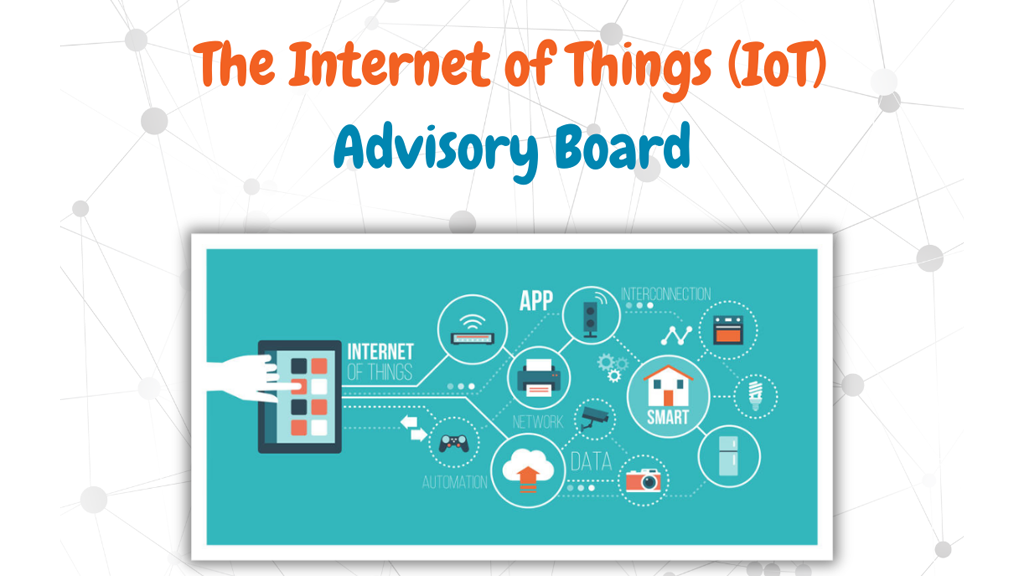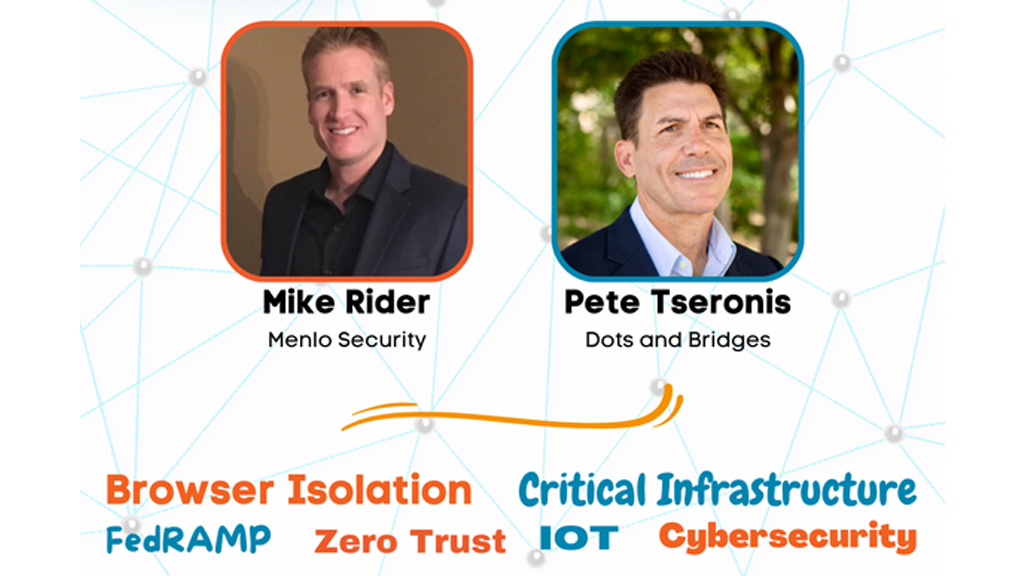
Watch Now!
Creating a Data Culture to Deliver on Mission
The public and private sectors share a symbiotic relationship; one that is necessary to enable effective operations, workforce development, and technological modernization. However, well-intentioned efforts to collaborate across Government, Industry, and Academic communities tend to focus on a buy-sell paradigm versus a seeker-solver opportunity.
Our global community is a ubiquitously connected network of physical devices that continuously revolutionize our international economy with on-demand access to data, systems, and each other. Unfortunately, this ever-expanding digital landscape presents persistent, sophisticated, and malicious campaigns that threaten the public and private sectors. Given our dependence on the Internet and its expansion within and across our Nation’s critical infrastructure sectors, it is vital that Government, Industry, and Academic entities adapt to the continuously changing threat environment, ensure products are built and operate securely, and collaborate to foster a more secure information-sharing environment.
Up-to-the-minute data can advance the economy and better serve citizens while helping build a digital-first government. A challenge, however, can be the processing, storing, and analyzing of the data. The sheer volume, velocity, variety, and veracity of data being generated today will continue its exponential growth, and the Federal Government is hyper-focused to leverage information as a strategic asset with modern governance, democratization, and accessibility. For this to happen, though, it is paramount that Government, Industry, and Academia collaborate and partner to “move the needle.” Fueling this partnership opportunity is the Bipartisan Infrastructure Law (BIL), a historic investment in our nation’s most critical infrastructure sectors dependent upon the accuracy, security, and fidelity of data.





